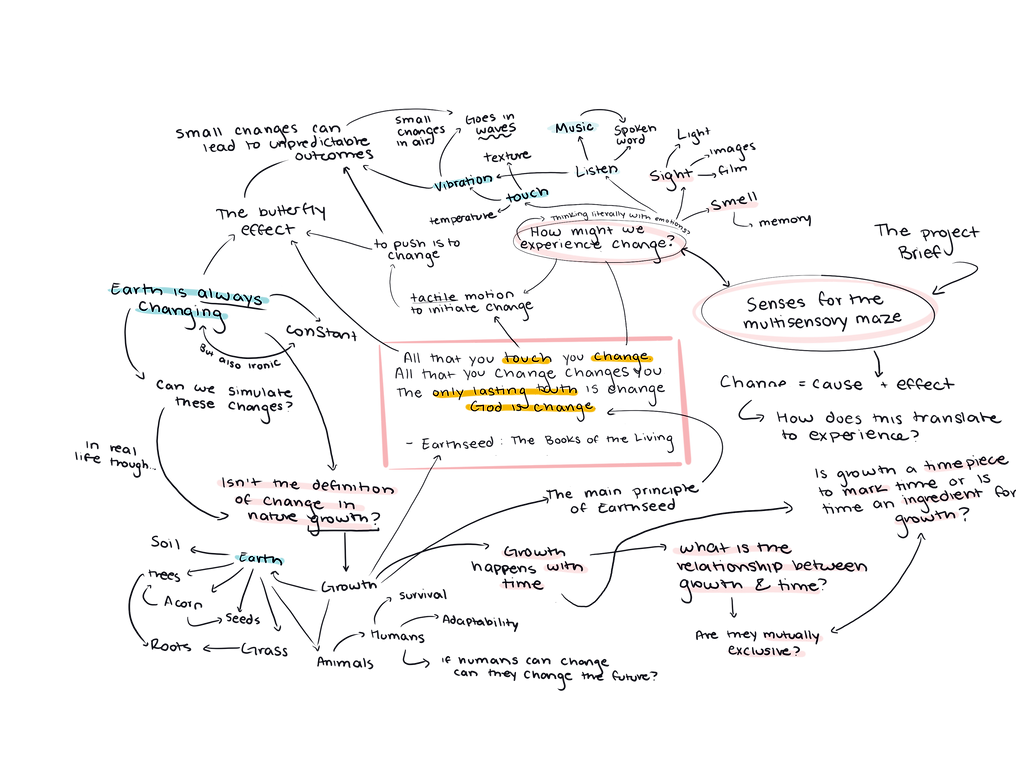top of page


Project
Earthseed Frequencies: Interactive Plush Mound with Vibration
Rooted in Octavia E. Butler’s Parable series, this vibrating mound offers a tactile, sensory experience where vibration becomes a language of change. Inspired by Lauren Olamina’s belief system, it invites visitors to sit with the Earth, tune in, and feel transformation from the ground up.
Project Overview
Installation
Wired for Wonder, a Getty-sponsored exhibit at the Kidspace Museum of Pasadena
Team
Kia McCormick
Brett Bognar
Zander Tate
Industrial Design, Project Management, Fabrication
Fabrication
Fabrication
Client
Sabela Grimes, Creative Director of Earthseed Frequencies for Wired for Wonder
Key Skills
Rhino + Grasshopper, CNC CAM & cutting, woodworking, upholstery, sewing, project management
Context
Sabela Grimes invited me to create an installation as part of his exhibit for the Kidspace Childrens Museum of Pasadena— he was looking to create a space where children could observe, listen, and reflect on projected audio-visual content. Inspired by Octavia E. Butler’s Parable of the Sower and Lauren Olamina’s Earthseed philosophy, the piece was designed to embody the belief that “God is Change.”
With that we began the creation process by sitting down and creating a mindmap


Mindmap Takeaways

Initial Concepts

Projection Mapping
Moodboard

Initial Sketches

Initial Renders
.png)
Concept: Vibration Mound with Beanbag
Final Sketch


Vibration Mound with Beanbag
Final Render

Bass shakers create a haptic experience that synchronizes with the audio and visual projections on the wall.
Building/Fabrication
1. 3D Modeling the structure on Rhino
During the construction process I had to keep in mind that the structure had to be strong and secure but could also be taken apart and rebuilt for easy transport and removal at the end of the exhibit
Dimensions in space

Bass shaker placement concepts
2ft by 4ft sections in the internal structure

Waffle structure created with grasshopper
Waffle is broken down into 15 different sections for easy construction
Registration holes to align the top mound
Bass shakers to be installed under top plate
2. CNC Machining the internal structure of the mounds

3D modeled 4 by 8ft sheets of 3/4in plywood for CNC

4 by 8 CNC router
Routed off tabs post CNC job completed
3. Assembling the internal structure of the mounds
3D Model

labeling system to allow for ease of assembly later
Physical Model

Tolerances fit! Assembled with wood glue and screws

Each of the 15 sections coming together to form the structure
Posts added for stability and to add height to the internal structure also to accommodate foam thickness
Top mound construction
4. Applying the chicken wire to create an organic form

Affordable and efficient way to generate a preliminary surface for the foam to adhere to later
Chicken wire application with staple gun
5. Using paper mache to create a surface for the foam to adhere to


paper mache with recycled bedsheets to form a more coherent surface for the foam to adhere to
6. Adhering the foam
Placing the foam order
Organized foam with labeling system

Foam delivered!

Adhering foam to structure by section to allow for the structure to still be taken apart
7. Designed patterns, cut, and sewed faux fur to custom-fit the mounds
Used Rhino to develop a sewing pattern



Sewing top and bottom mound faux fur coverings


Created a preliminary pattern to protect the foam and make sure the pattern fit
Onsite Installation
1. Moving the mounds to the exhibit site
Packed up mound structures in a 10ft uhaul

Drove Uhaul to Kidspace children’s museum
2. Assembling the internal structure
Assembled the structure together with screws

Installed Bass shakers underneath top plate
3. Final upholstery and, assembly of the two mounds
Added a final layer of batting

Pulled faux fur covering over and secured it underneath the structure
Final Vaccum
Testing the structure onsite


Final Exhibition
Projection mapping


Opening Day


bottom of page






